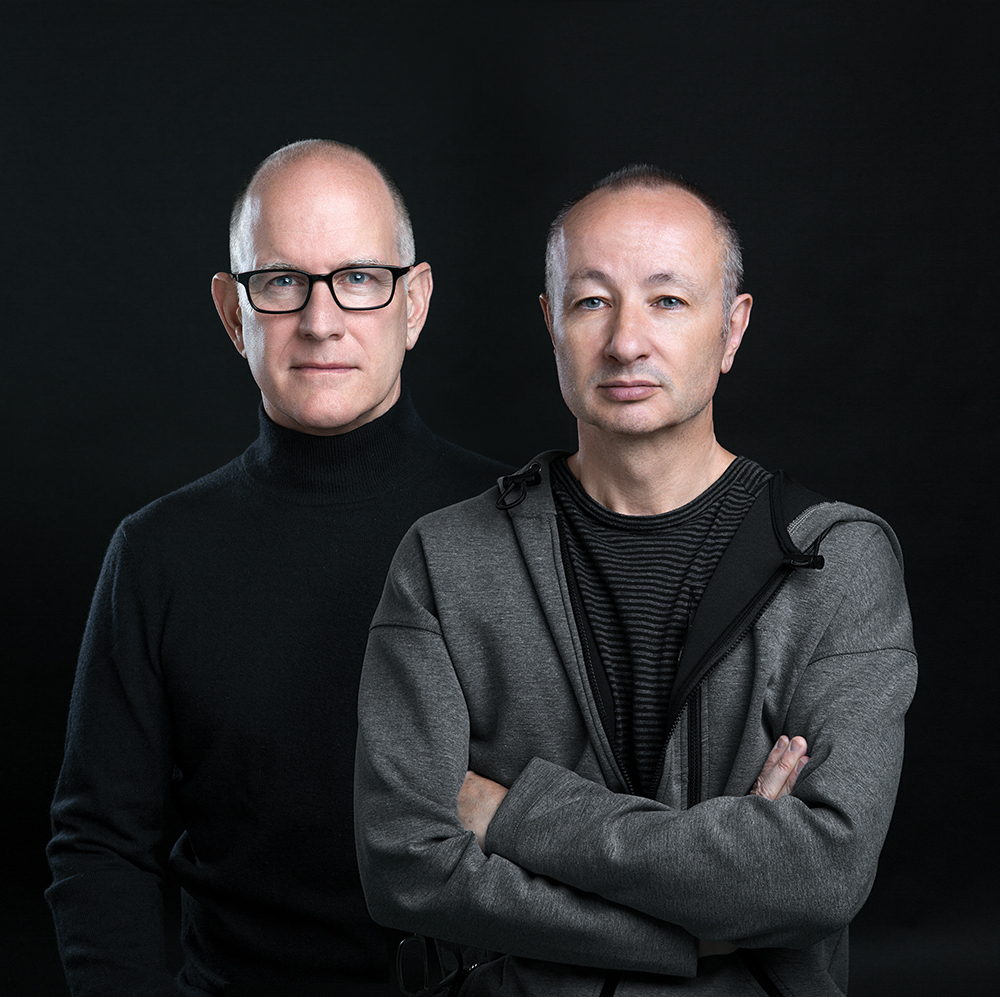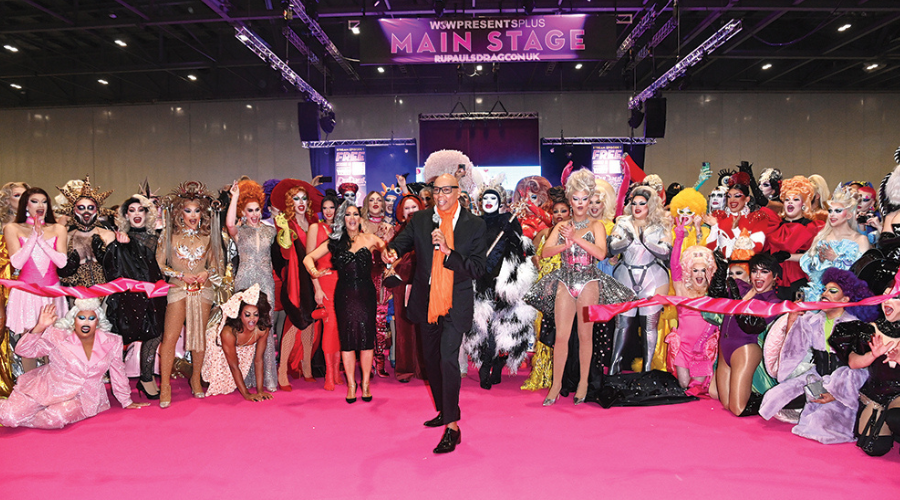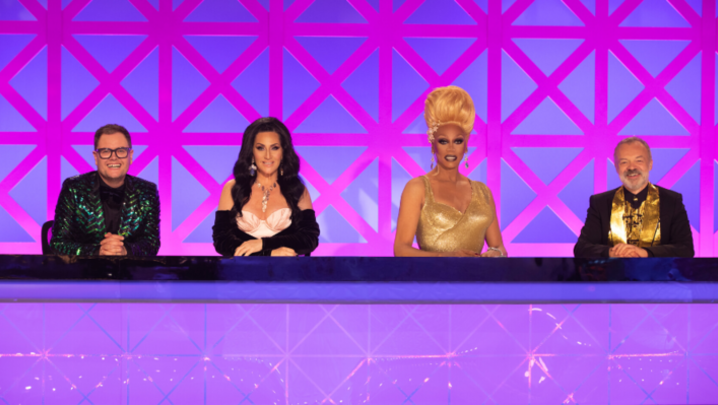Matthew Bell talks to the duo behind RuPaul’s Drag Race as their company, World of Wonder, turns into a global sensation
RuPaul’s Drag Race celebrates its 15th birthday in the US and 5th in the UK this year. Worldwide, it is approaching 1,000 episodes. That’s a lot of glitter, glam and glad rags.
As Baga Chipz memorably said on the UK version: “I’m like thrush – you can’t get rid of me.” You could say the same about the wildly successful Drag Race, but did World of Wonder founders Fenton Bailey and Randy Barbato think their show – which remains in, literally, rude health – would last so long and reach so far?
“No,” admits Bailey, “but you wish the best for all your babies. It comes down to the incredible artists. The talent has been around for generations, well before Drag Race, but that talent never really had a platform on TV, a showcase for its creativity.
“At the same time, drag is not just something for the margins. Even though it comes from the LGBTQ community, it’s universally relatable. Like Ru says, ‘You’re born naked and the rest is drag.’”
Bailey was born in Portsmouth and studied English at Oxford University, before joining the Graduate Film Program at New York University and meeting Barbato. The young Brit made an instant impression. “I thought Fenton was kind of a freak. He had on fluorescent, leopard-like, super-tight pants, high-top sneakers and a pearl necklace; his hair was in a bun and he had a dangling earring,” recalls Barbato, who hails from New Jersey.
Bailey was less struck: “Randy was all-American. He was wearing a pair of acid-washed jeans…”
“I never bought a pair of acid-washed jeans, Fenton…”
Bailey corrects himself: “They were naturally worn and faded, frayed; they were authentically old, and he had hair, as did I then. He was wearing a T-shirt his best friend had painted with a horrible portrait of Marcia Brady…”
“It was the Brady Bunch,” corrects Barbato.
“I’m sorry,” continues Bailey, “I was, ‘What a mess!’ Everybody else was in preppy button-downs, penny loafers, and Randy was not that at all.”
Bailey and Barbato are talking to Television via Zoom from LA. They are great conversationalists; a double act honed over 40 years. For a while, they were an item but for two decades have been partners only in business.
“Having someone you can trust, even to the level of arguing but knowing it’s never going to break the trust bond, has been really helpful,” says Bailey.
TV wasn’t their first venture.
“We thought pop music was our calling. We were called the Pop Tarts and then, I guess because people didn’t get the message, we called ourselves the Fabulous Pop Tarts,” recalls Bailey.
They were an electropop duo, which Bailey has described in the past as “like Pet Shop Boys but camper”. Is that fair? “Yes, which I think was our problem, because Pet Shop Boys are quite camp enough.”
While on tour in Atlanta, Bailey and Barbato met the then-unknown drag queen RuPaul Charles in a truly “life-changing moment”. The duo formed World of Wonder in 1991 and went on to produce RuPaul’s shows, drag conventions and, most lucratively, RuPaul’s Drag Race, which has notched up 33 Emmy awards. The LA-based World of Wonder has made UK shows such as The Adam and Joe Show, and documentaries on subjects as varied as the 1969 Stonewall riots, Monica Lewinsky and Robert Mapplethorpe.
The real estate reality show Owning Manhattan is currently wowing (and appalling) audiences on Netflix, and RuPaul’s Drag Race Global All Stars began streaming in the UK on global hub WOW Presents Plus last month.
It’s a dizzyingly diverse slate, far removed from their favourite childhood shows. Barbato names variety series such as The Carol Burnett Show and Cher, while Bailey fondly remembers the Adam West/Burt Ward Batman and Robin:
“It was camp, powerful and comical, silly and irreverent. There was something subversive about it.
“And then, of course, Are You Being Served?, which was camp and outrageous. Randy, are you familiar with Mrs Slocombe’s pussy? Sometimes it’s hard to believe that people got away with what they got away with.”
Over three decades, World of Wonder has travelled from the fringes of popular culture to the TV mainstream, giving a voice to the outsider. RuPaul’s Drag Race began life on a US gay pay-channel, gravitating to streamers such as Netflix and national broadcasters around the world.
WOW Presents Plus launched in 2017. The company predicts that 2024 will be a record year for growth. Since the start of the year, it claims that subscribers are up globally by 38%. Audience figures are especially strong in Brazil, France, South Africa, the Philippines and Mexico. The service costs around $5 a month.
“This is not meant to be bragging, but financially we’ve been super-successful. We’ve had growth every year since we started – we’ve been super-scrappy,” says Barbato.
“[But] we are not in competition with Netflix – there is room for a commercially successful streamer that satisfies an audience like ours.”
Bailey adds: “In a world with a mountain of content, people will still spend the price of a latte on something that is more specialist and curated.
“We are not trying to be all things to all people, and we are not ruled by an algorithm. It’s curiosity, it’s wonder. We think that if it’s interesting to us, then it’s going to be interesting to other people, too.”
The TV business is more complicated nowadays but a lot more fun, reckons Bailey. Television, he says, used to be kept in its box. There was a “suspicion of the medium – it was likely to rot your brain and ruin your eyesight and was the focus of all the usual moral panics.
“It is incredibly exciting the way [it’s developed]. I have kids – the nine-year-old is a YouTuber and the 17-year-old is making and creating his own content, way ahead of anything Randy and I were doing when we were at film school in our twenties.
“It’s a fundamentally different world – we’re living in a screen age.”
No one has summed up the essential goodness of RuPaul’s Drag Race better than the Observer journalist Eva Wiseman. She wrote that it has been responsible for “taking drag mainstream and for showing, week by week, that queer people are not odd or inferior, but funny and nuanced and human, and worthy of respect”.
Whatever people do in terms of crushing dissent and silencing voices, they are doomed to fail
RuPaul’s Drag Race matters at a time when drag acts have come under sustained attack from the far right, both in Britain and in the US, where some states have banned drag shows from public places.
“The rise of the populist and evangelical right is a tremendous problem in America and also for the rest of the world… there is no greater threat to our very existence than that,” says Bailey.
Nevertheless he remains hopeful: “Paradoxically, whatever people do in terms of crushing dissent and silencing voices, they are doomed to fail. That’s not just my optimistic nature. Historical record shows it. You can try to turn the clock back, but you might as well be screaming at the waves.”
As for the future, Bailey promises: “There’s no stopping. They’re going to [have to] carry me out in a box, kicking and screaming.”
Made in Brixton

(credit: Mathu Andersen, World of Wonder)
Manhattan Cable, a gloriously trashy late-night show for Channel 4 that took its content from the crazy world of US public-access TV, was the company’s first production. The 1991 series featured a revolving cast of the talented and talentless seeking their 15 minutes of fame – Queerdonna, Filthy the Dog, even a young RuPaul – expertly hosted by the effortlessly hip Laurie Pike.
‘People seemed open to more fresh ideas in the UK than the US. Entry to the media in Hollywood was super-difficult 20 or 30 years ago. It’s different now,’ recalls Randy Barbato. Fenton Bailey adds: ‘Channel 4 was set up to accommodate voices that weren’t being heard. It was a great time to be making stuff.’
From their Brixton base, the duo went on to make The Adam and Joe Show, the TV debut of Adam Buxton and Joe Cornish, and the Jon Ronson documentary series The Secret Rulers of the World.
Do they miss working in south London? ‘Not really,’ admits Bailey, though he regularly returns to the UK. ‘One strong memory is when there was a riot, and someone was burning down the station. We’d just bought one of the first non-linear edit systems. We’d end up sleeping in the office to guard it.’
The worldwide wow factor
Twenty-six versions of the original US show have been produced across 17 countries, including the hit UK version, back on BBC Three for a sixth series this autumn.
The first four series alone of RuPaul’s Drag Race UK have been streamed more than 67 million times on BBC iPlayer. Worldwide, says Fenton Bailey, the show has had similar success: ‘Drag has existed in every culture and it’s emerging from the shadows. People are embracing it. On the TV executive side, there’s apprehension – then they make the show and it’s, “Oh my God, what happened? It’s doing phenomenally well!”’
Randy Barbato adds: ‘We take our time figuring out who our partners are going to be. The show itself needs to be immersed and reflect the culture of that country. Every season, in each territory, we rip the show apart and rebuild it – the show is like a drag queen and we dress it up and turn it out in its finest drag every season.’
Bailey chips in: ‘A drag queen isn’t going to wear the same thing on the runway twice. Spain brings to the table an Almodóvar vibe; France is haute couture.
‘The shows are also determined by the personality of the hosts and judges,’ adds Bailey. ‘In France, we’ve got Nicky Doll, who was on Drag Race and is an incredible host. In Spain, it’s the two Javiers [Ambrossi and Calvo]. The shows feel very authentic to their place. And, you know, there’s nothing more British than Baga Chipz!’






